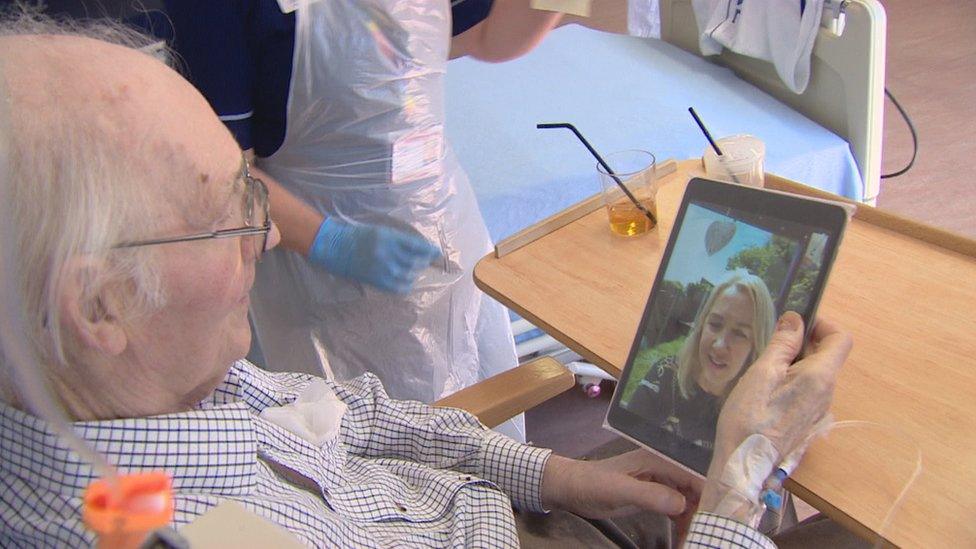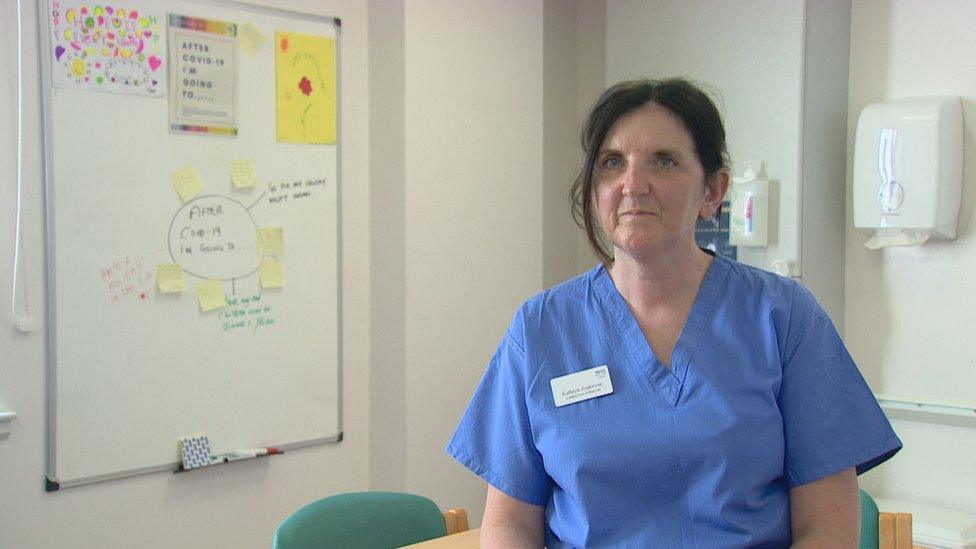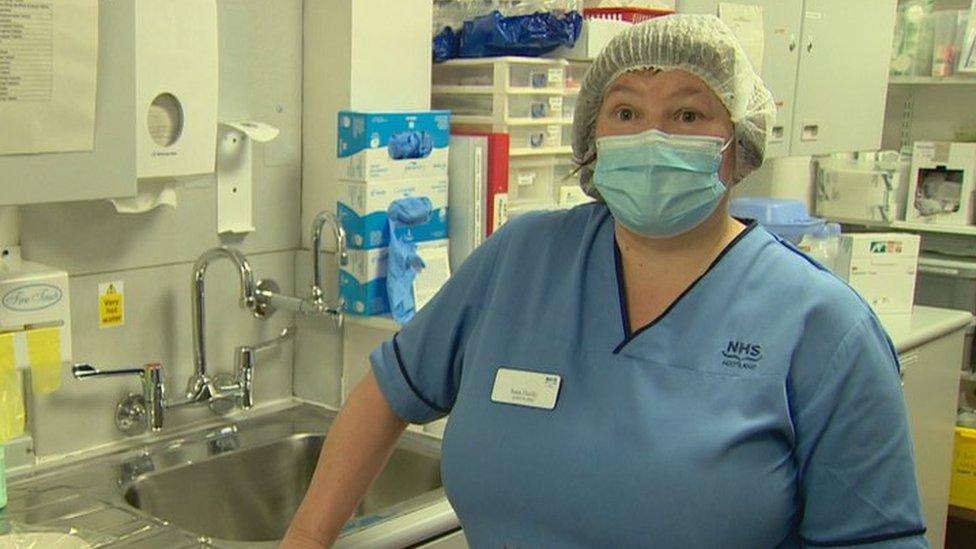Caring for the elderly who survive coronavirus
- Published

Ron Robbie has been in hospital since January
Coronavirus is a disease that has disproportionately affected the older population but even among the over-75s there are many survivors.
Every one of the 13 inpatients on ward 55 at the Western General Hospital in Edinburgh has had Covid-19, including 82-year-old Ron Robbie.
He was admitted to hospital in January, after a fall. During that time he has also suffered a stroke and tested positive for coronavirus.
Since lockdown began, his daughter Sue has not been able to visit in person so she speaks to him regularly on video calls. Her brother in America does the same.
"It's really difficult to be honest," she tells us from her home in Cheshire.
"It's good that the hospital have got iPads and we're able to do this, but it's really tough not actually being able to see my dad face to face."

Ron's daughter Sue keep in touch via a video call on an ipad
Sue says she has been astounded by her father's resilience.
"He's an absolute trooper and words can't describe how grateful I am to the NHS for everything they've done," she says.
"My dad's mood is low and he's really fed up, but he's in the best place."
Now settled in the ward, Ron agrees. "I cannot fault the nursing staff," he says. "They've been very attentive."
According to consultant Dr Kath Anderson, the symptoms of elderly people often present in a different way to younger sufferers, which poses an added challenge for staff.
"Younger people present more typically with symptoms of a fever or cough," Dr Anderson says. "But elderly people, when they have any illness actually, will present with increasing confusion or a fall.
"So we just have to have it on our radar to have a high index of suspicion that Covid might be implicated as part of their illness process."

Dr Kath Anderson says dealing with elderly patients is different to younger ones
Dr Anderson says that if somebody develops Covid in a hospital area they need to take steps to isolate them to protect staff and other patients.
She says this means moving patients around the hospital, something they would not normally choose to do.
"We know for older people who are vulnerable and might have dementia or cognitive impairment, even a move from one bay to another can worsen that situation for them," she says. "But that's part and parcel of this."

Nurse Sam Dailly tests the patients for Covid-19
As part of efforts to track the spread of the coronavirus within hospitals, all patients over 70 are now being tested every four days.
Nurse Sam Dailly is one of those who does the testing rounds.
She says: "I had it three weeks ago so I was isolated, and I came back to work last week. So with this testing procedure I know exactly how it feels and it is quite upsetting, but it has to be done."
Nurse Dailly says some older patients get distressed by the "invasive" swab test for Covid-19.
"We try to do the procedure as quick as we can and give explanations as we're going along but it is quite distressing," she says.
With families unable to come into the ward to help with feeding or laundry, the nurses are filling these gaps, as well as their usual duties.

Another obstacle is the protective masks and other PPE which make it harder to communicate with patients who may be deaf of visually impaired.
Like every other area of medicine, elderly care is having to adapt. Covid is not going away any time soon so these measures will be in place for the long term.
"It is very difficult just thinking about going forward to continue looking after patients in this way," says Dr Anderson.
"We're going to be living with it and we're going to have to nurse and treat people differently for the foreseeable future. So that is something you have to reconcile with yourself."

Nurse Dailly says she has had a few upsetting incidents on the ward because people are approaching end-of-life.
"It's difficult because you can't communicate with families face to face and you're having to give them bad news on the phone," she says.
"We have a policy in the ward where when people are approaching end-of-life two visitors can come in, next of kin, which does help, but you find people deteriorate quite quickly and that is really upsetting sometimes."
Dr Anderson says being prepared for the choices that come at the end of someone's life is crucial.
She says: "We'd really like people to think about what they would like if they become really unwell, when they're at home, comfortable and well, and can have that conversation with their GP and their family around them, rather than leaving it until they're in a crisis situation."